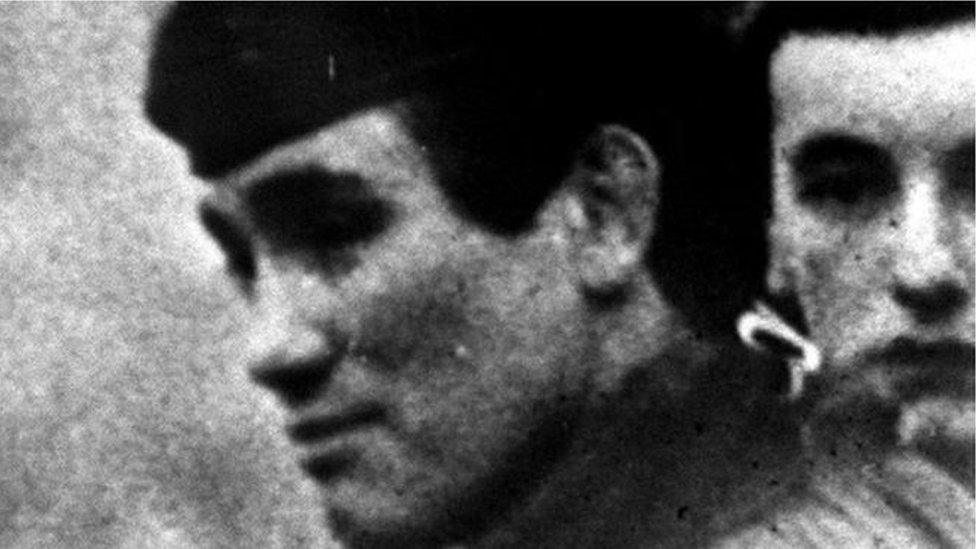The hunt for the murdered British soldier who was determined to be noticed
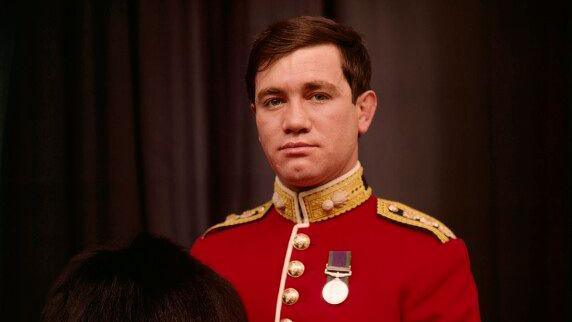
Capt Robert Nairac was working undercover when he was murdered in 1977
- Published
"They began to regard him almost as the Army mascot - the wise guy."
These are words of Seamus Murphy, a former councillor in south Armagh.
He is describing Robert Nairac, the young British Army officer who was abducted, killed and secretly buried by the IRA almost 50 years ago.
Nairac was undercover in the pub the Three Steps Inn at Dromintee, in County Armagh, on the night of his death in May 1977.
Determined to be noticed
A new BBC documentary, The Disappearance of Captain Nairac, explores how Capt Nairac seems to have been determined to be noticed.
In Crossmaglen, considered one of the dangerous postings for British soldiers during the Troubles, the Grenadier Guardsman became known as the singing soldier, "Danny Boy", because he sang in local pubs.
Murphy told the documentary how Capt Nairac would regularly visit his constituency office in the town.
"The noticeable thing about him was that he was wearing baseball boots and a cowboy hat," he said.
"He had a certain swagger and arrogance about him, and he had an awful habit of putting his gun down and walking away from it, which everybody thought strange because squaddies didn't do that. But he was different in many ways.
"He certainly would come in and greet us in Irish."
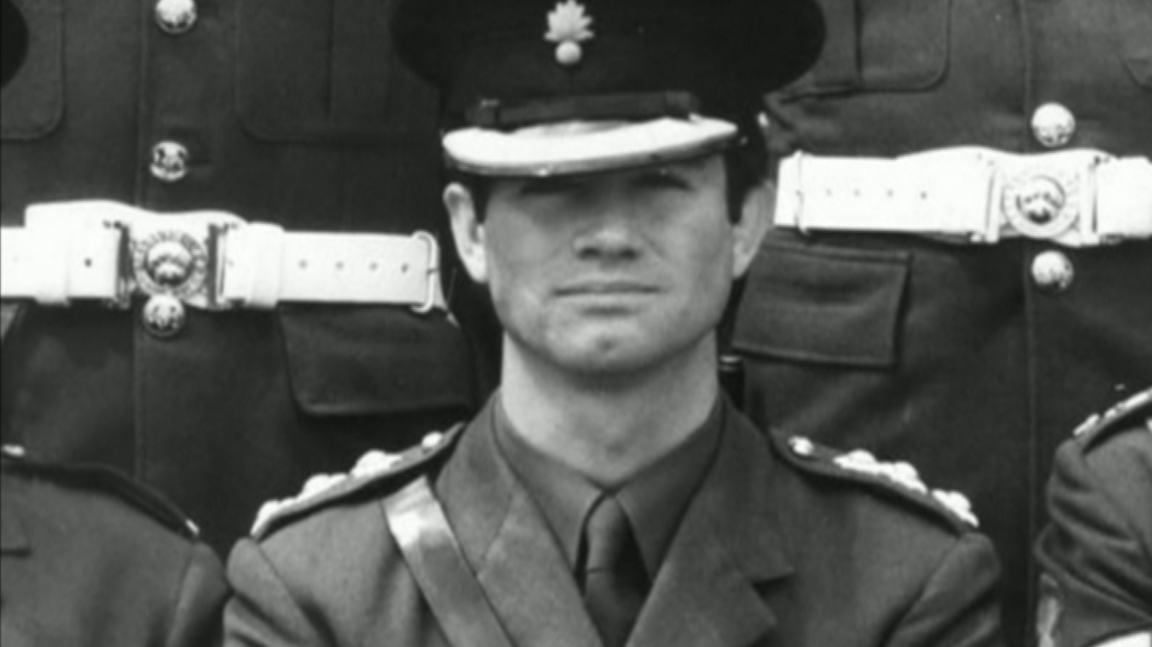
Capt Robert Nairac was one of 17 people murdered by republicans during the Troubles and secretly buried
But Capt Nairac did not just patrol in unconventional military garb.
He also worked undercover in the border region.
Murphy spotted him one day in a nearby market town.
"That was in the cattle market in Newry," he said.
"I saw him in a dirty overcoat and wellingtons, and a cap. Overcoat was tied with a rope. I barely spotted him in the crowd, but he spotted us. It was him."
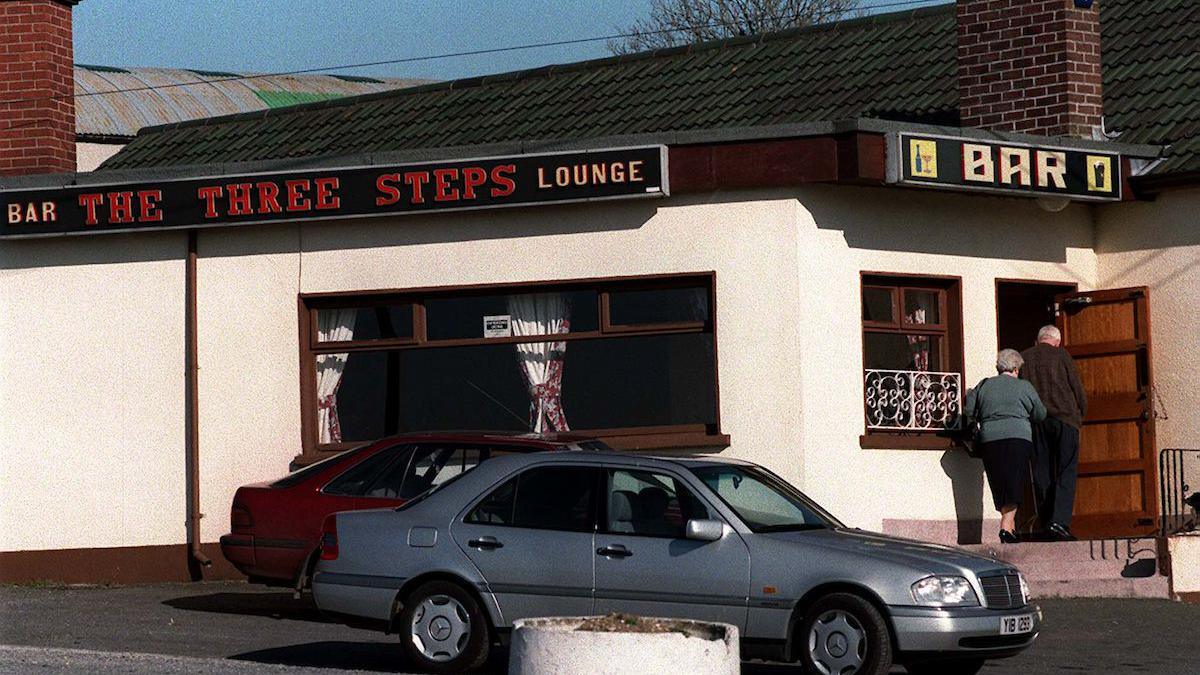
The Three Steps Inn in south Armagh
A former Special Branch officer and long time friend of Capt Nairac believes the soldier went to the Three Steps Inn at Dromintee that night in 1977 in the hope of getting close to an IRA figure.
At the end of the night, he was challenged in the pub car park, beaten up and driven across the border where he was shot dead.
Despite a brutal interrogation, Nairac never revealed who he was.
In 1979 Capt Nairac was awarded the highest George Cross for "exceptional courage" and "devotion to duty".
His body was later secretly buried and has never been found.
It had been claimed that his remains were disposed of in local meat processing plant. That was not true.
Last year the first official focussed search for his body was carried out in north County Louth.
The Independent Commission for the Location of Victim's Remains (ICLVR) carried out the search which was focussed on just over an acre of farmland close the main Belfast to Dublin motorway.
The commission was acting largely on information provided by a former IRA member Martin McAllister who has devoted years of his life to finding the Army officer's remains.
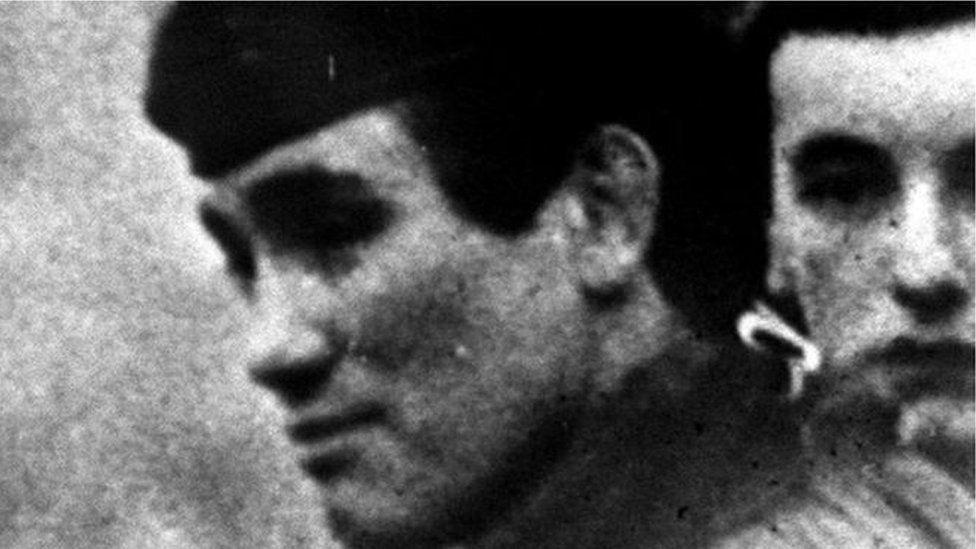
Nairac joined the Grenadier Guards after graduating from Oxford
"This man should be back with his family. It's been on my mind constantly, you know, because it's an open, running sore in this area," he said.
"This man was a soldier and I was his enemy.
"But to disappear somebody is something I never agreed with. No-one should be left in such a position where they haven't a grave to visit."
McAllister was himself shot and wounded in an encounter with British troops in 1974.
He recalls how he expected to be shot dead but was not.
"I was prepared to accept the consequences. I have no problem with them shooting me. That was fair enough. I was at war with them, and they were at war with me.
"It didn't happen. A Royal Marines medic saved my life. This, to me, was chivalric."
Instead he was bandaged up and flown to hospital.
That moment has never left him.
He contrasts it with the fate of Capt Nairac, shot dead by his captors in a border field.
"I know the feeling. When you are at the hands of people who want you dead - you know - except I survived," he said.
'You can't excuse what happened'
It is one of the reasons why McAllister is committed to finding the remains of his one-time foe.
When he joined the IRA he said he was flush with idealism but the nature of the conflict that lasted three decades sullied that.
"What came down the road was unbelievable. And the price we paid for it was far too high," he said.
"And you know the truth is this. Stuff happens in war and people excuse it. You can't excuse what happened."
The ICLVR suspended the search after two fruitless months.
But their own intelligence and what they learned from Martin McAllister suggests that Capt Nairac's remains are in the vicinity of their search area.
They are hoping that someone will provide new and more precise information to allow them to start again.
Martin McAllister will keep searching until his dying breath.
The remains of four people, murdered and secretly buried by the IRA have still to be found.
They are Joe Lynskey, Columba McVeigh, Seamus Maguire and Capt Nairac. The ICLVR continues to appeal for anyone with information to come forward.
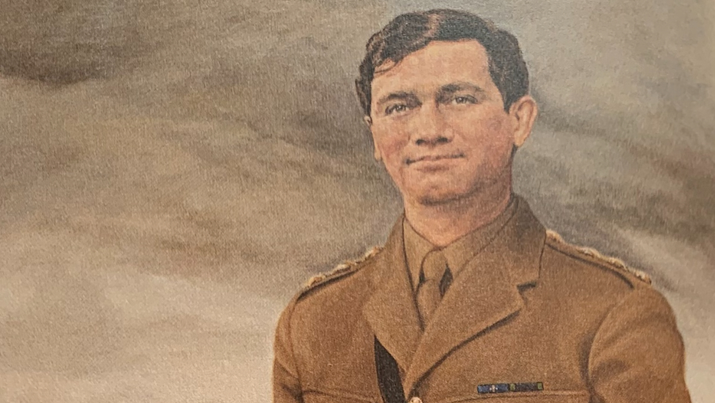
A painting of Capt Nairac - part of the Royal Military Academy (RMA) Sandhurst Collection
Who was Robert Nairac?
Robert Nairac was a devout Catholic from Gloucestershire.
After graduating from Oxford – where he read medieval and military history – he joined the Grenadier Guards.
Nairac operated in the shadowy and murky world of covert intelligence gathering.
Rumours linking him to the Miami Showband massacre and the killing of an IRA commander in County Monaghan persist, but no proof has ever emerged and last year a coroner said suggestions of his involvement in the Kingsmills massacre were “utter fantasy”.
The Disappearance of Captain Nairac airs on Monday on BBC NI at 22.40 GMT and will be available on the BBC iPlayer.
Related topics
- Published26 August 2024
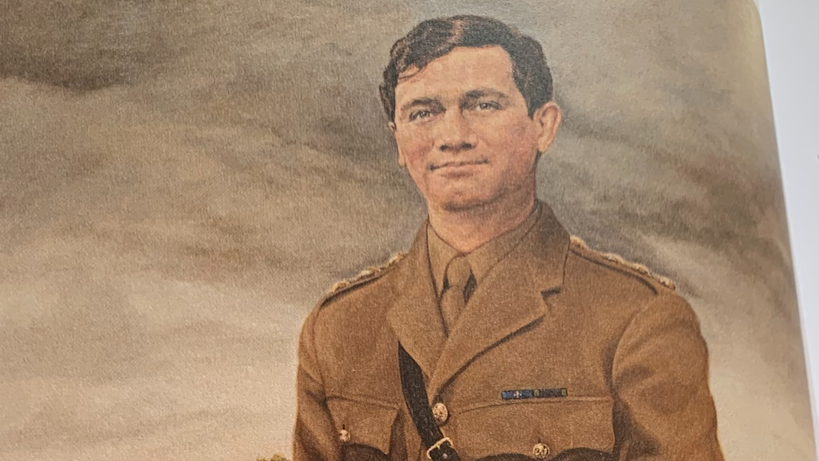
- Published26 August 2024
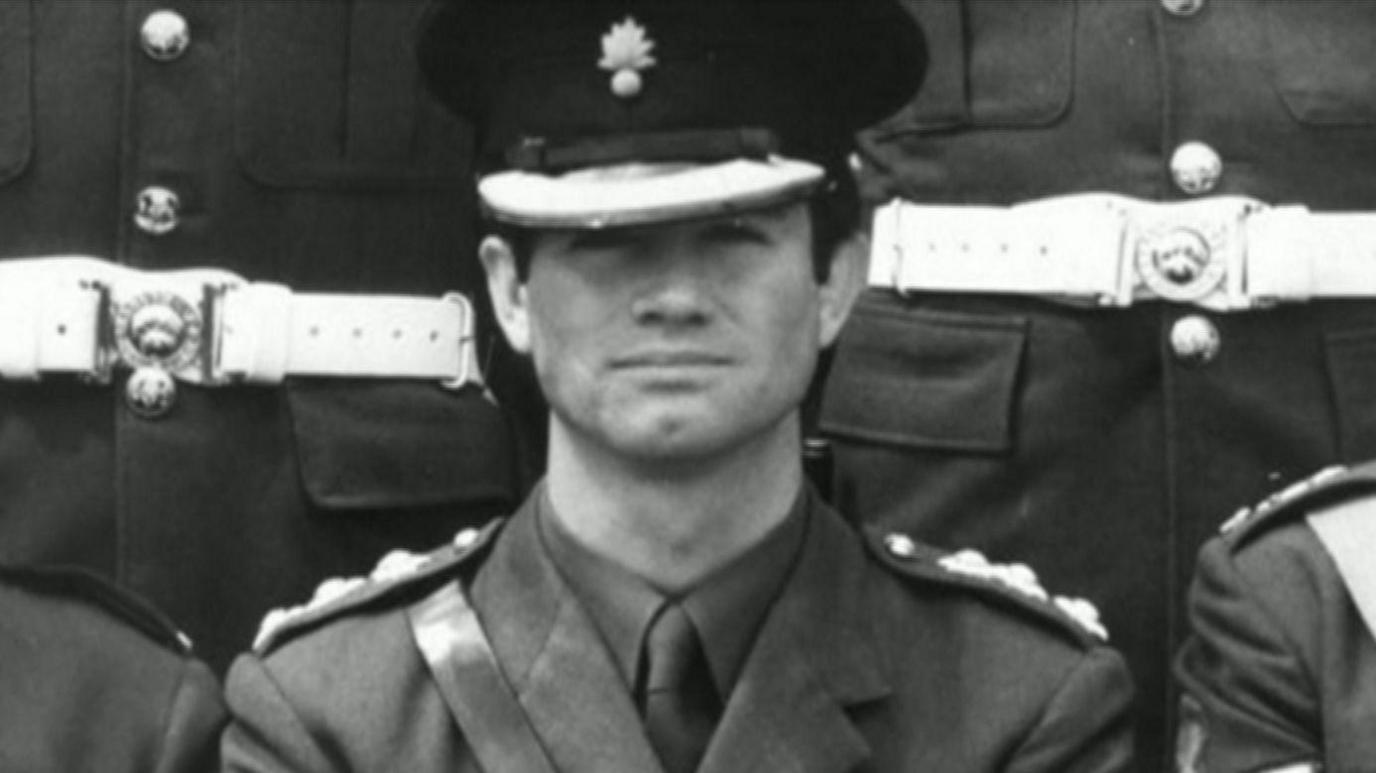
- Published14 May 2022
